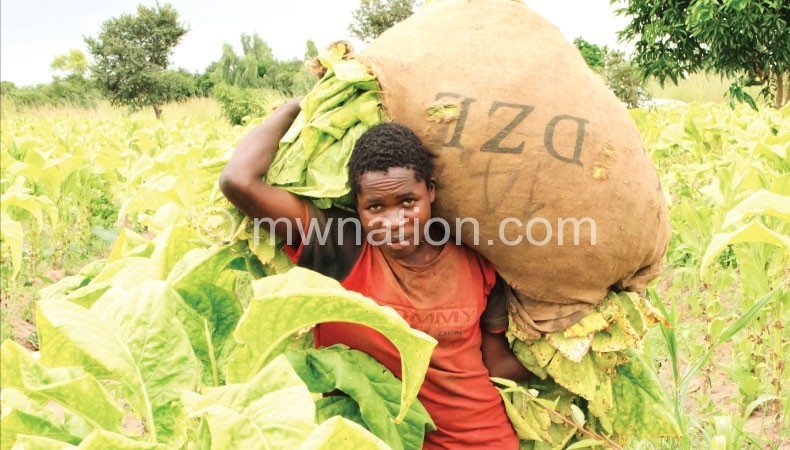Changing climate, resilient fields
In Chitipa, some farmers from poor background have only recently begun to understand the harsh realities from changing climatic condition.
In the remote setting, the growers speak of tough times. According to the locals, not only do the rains start late and end too early for their crops, the shortening rainy seasons are often marred by dry spells and heavy downpours as their fields get breached and hugely eroded.

“Times are changing and we need to change too,” says Daise Kasonda-Mughogho of Mwenje Village.
For Mughogho, born in the 1960s, growing maize, which was considered the only staple across the country, entailed a huge struggle to buy fertliser.
Now, the poor woman does not complain about being excluded from the State-funded Farm Input Subsidy Programme (Fisp).
She actually wants fewer and fewer farmers using chemical fertliser.
Since last year, the farmer has been experimenting with manure farming.
After a successful spell, she proclaims: “This is the way to go for poor farmers and those determined to get high yields despite the changing times.”
She might be too poor to buy fertliser, which costs nearly K24 000 per 50kg bag.
However, she seems convinced that the the high shop price of the soil-enriching substance is no reason the have-nots must plunge into chronic food shortages.
During the meeting, she was inspecting a manure pit on the borderline of her maize field. It measures one metre deep, 9m long and 1.5m wide. It’s filled with decks of maize stalks from the previous harvest which reportedly exemplified beyond a doubt that manure making could be a game changer for rural farmers who tend to be the worst hit by harsh effects of climate change. The decomposing stalks are mixed with livestock dung to make potent manure that is changing her fortune.
“Last year, I was just weighing the difference. This season, I will stick to manure not because the price of fertliser is beyond my reach, but it guarantees us a high yield when the rains vanish early,” she says.
The woman, who rears cattle, chickens and goats, is one of the lead farmers trained in climate smart agriculture by Maukako Community-Based Organisation with support from ActionAid Malawi.
The sustainable agriculture programme envisages poor households hit by chronic food shortage harvesting more on small pieces, affordable costs and less tilling, says ActionAid programme officer WonganiMugaba.
The ageing farmer paid tribute to manure, saying experience shows it enhances fertility, texture and water retention of the soil.
In her imagery, walking on ‘the barren spot which was almost as solid as a rock now feels like walking on springs.
“The soil is spongy and produced three times what I used to yield when I was clamouring for fertliser,” Mughogho says.
Not only is she able to fill a granary which had gone quarter full for the previous years.
Being a lead farmer, she is keenly sharing her modern farming skills with those willing to emulate her.
Actually, her neighbours know her as a shining light when it comes to climate-smart agriculture.
The lead farmers are playing a central role to close a long-standing gap in the remote area where the majority of farming households span a year without seeing an agricultural extension officer, they say.
The outreach staff for agriculture might be inadequate throughout the country, but the rural population feel they keep doing business as usual and facing bleak food prospects because the extension workers shun them in preference for urban settings.
The cry comes loud and clear in Benthu Village, where farmers increasingly pay homage to Hopson Chilongo’s field.
Maize stalks are all over the place. So are anthills of manure. As a matter of fact, 150 heaps of manure dot the garden. There are manure pits as well.
“Most poor families are starving not because the price of farm inputs is skyrocketing but they have no access to modern farming skills,” the father of six says.
Since the training at the hands of Maukako, he has trained 30 farmers on how they can use readily available goods to overcome effects of climate change.
The followers include 15 men and 15 women.





